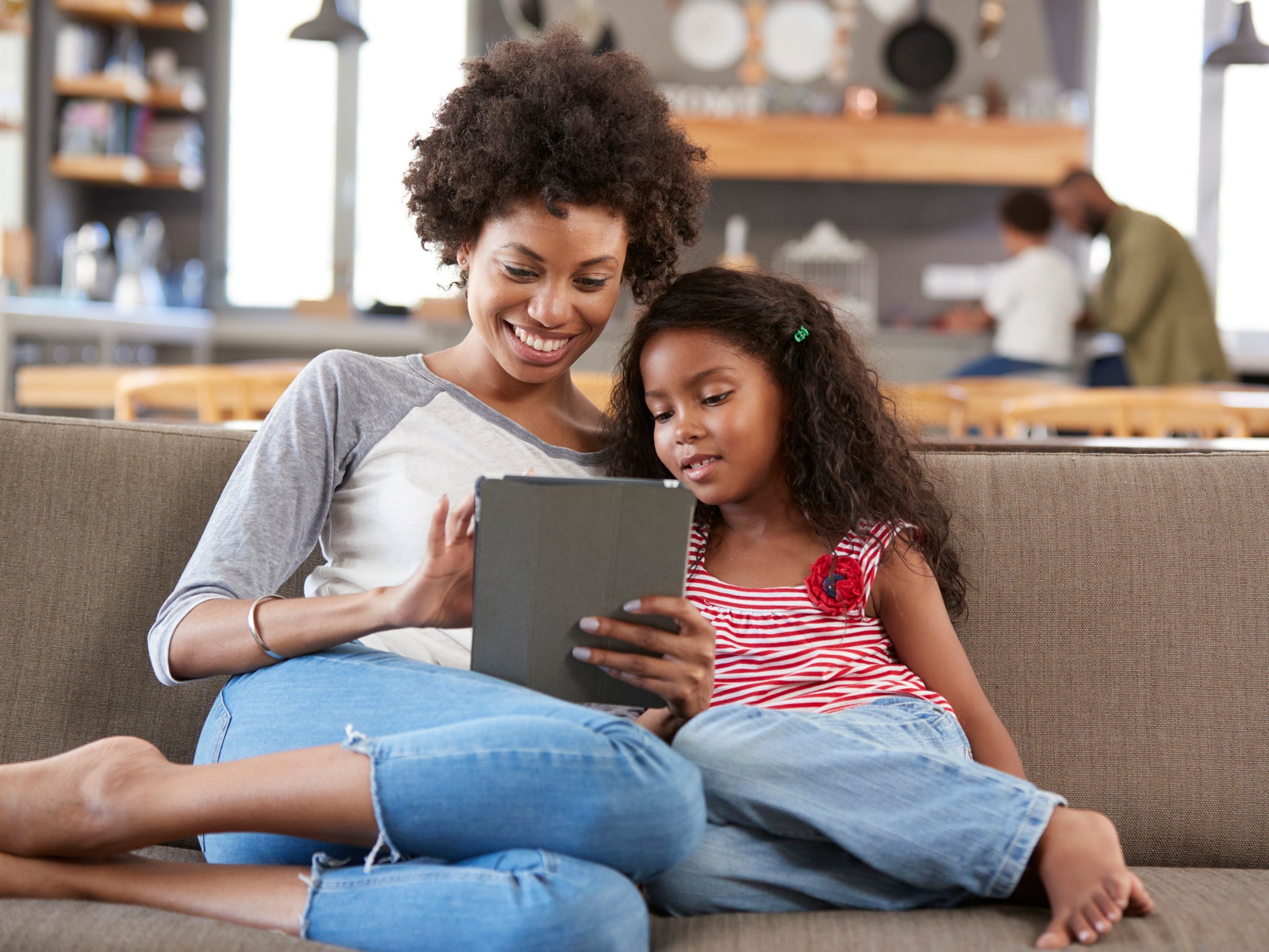Use of mobile devices doesn’t reduce family time at home, study finds
‘Device use is now embedded into family life’

The use of mobile devices does not reduce the amount of time families spend at home together, new research has found.
With the number of mobile devices in the world increasing at a rapid rate, one may assume the use of gadgets such as tablets and smartphones would have a negative impact on quality time spent between children and parents.
Nonetheless, a new study conducted by researchers at the Universities of Oxford and Warwick has discovered this may not be the case.
According to the study's findings, which were published in the Journal of Marriage and Family, children are spending more time at home with their parents than they were in 2000.
However, the amount of time children and parents spend together doing shared activities such as eating meals or watching television remains largely unchanged.
Read More: Compare contract providers and find the best deals with our Mobile Phone Deals page
For the study, the team assessed data collated from household Time Use Surveys in 2000 and 2015.
They analysed a sample of 5,000 daily diaries written by 2,500 children aged between eight and 16 and their parents.
According to the research, families spent an average of 30 more minutes together per day in the same location in 2015 than they did in 2000, with average overall family time increasing from 347 minutes to 379 minutes.
By 2015, children were found to be spending an average of 136 minutes a day at home partaking in "alone-together time", and 87 minutes a day participating in shared activities with their relatives.
"Alone-together time", as the researchers explain, is when children are at home with their parents but say they are alone.
The researchers also note that the amount of time parents and children spend a day doing shared activities has only slightly altered over the past 15 years, increasing by three minutes.
“Our analysis has found that the overall family space has expanded, but it’s this alone-together time, when children and parents are in the same location but children are reporting that they are alone, which has made up the increase," says Dr Killian Mullan, from the department of sociology at the University of Oxford.
“Given this large increase in alone-together time, it is perhaps reassuring that we also found no decline in the amount of time families spent in shared activities between 2000 and 2015.
"This suggests that parents still value key aspects of traditional family life, such as family meals or shared hobbies, and seek to prioritise them in the face of pressure from technological change.”

Dr Stella Chatzitheochari, from the department of sociology at the University of Warwick, explains that the study indicates how use of digital devices has become "embedded into family life".
"It is worth noting that mobile device use may be complementing family activities and also help children and young people build and maintain friendships outside of the home," Dr Chatzitheochari adds.
The sociology professor believes more research is needed to explore how the quality of interactions between family members is impacted by mobile device use.
A recent study published in journal JAMA Paediatrics found the amount of time children under the age of two spend looking at screens on digital devices has more than doubled over a 17-year period.
Join our commenting forum
Join thought-provoking conversations, follow other Independent readers and see their replies
Comments
Bookmark popover
Removed from bookmarks